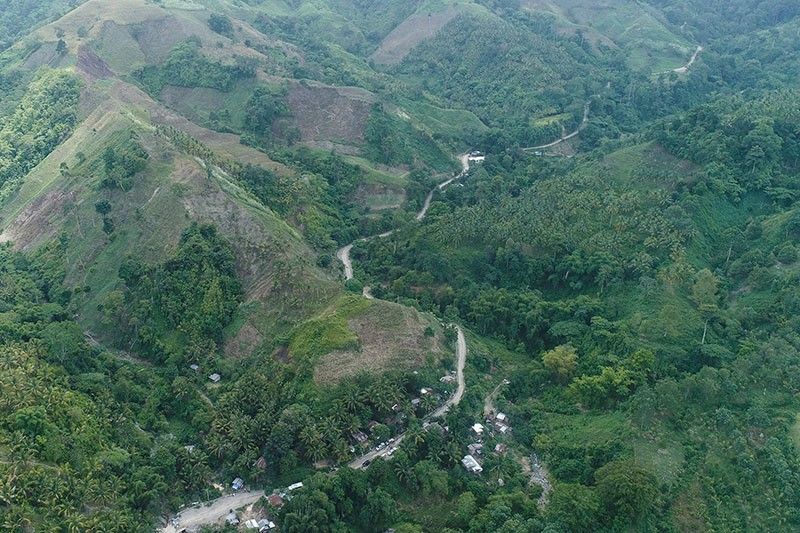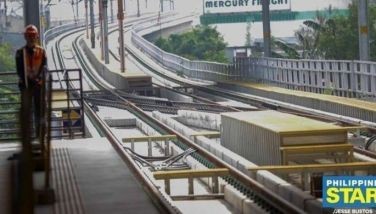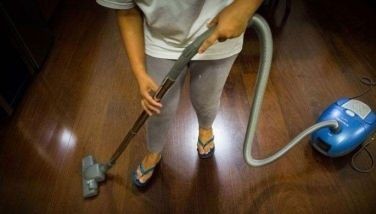Blaans favor copper, gold extraction in South Cotabato

KORONADAL CITY, Philippines — Roel Apas is a college professor who is so proud of having finished college with the help of a mining outfit in Tampakan, South Cotabato.
Apas, who has a master's degree in public administration, is one of 757 ethnic Blaans who are now professionals, courtesy of the Samahan ng mga Matatalinong Indibidwal scholarship program of the Sagittarius Mines Inc., or SMI.
The scholarship program caters to deserving students in enclaves covered by the SMI's Tampakan copper and gold project.
The SMI has been, for two decades now, still eyeing to extract copper and gold in mineral-rich highland barangays in the towns of Tampakan in South Cotabato, in Columbio, Sultan Kudarat, in Malungon, Sarangani, and in Kiblawan, Davao del Sur.
“We wish that the SMI can soon operate so that more Blaans can avail of its scholarship program,” Apas who hails from Kiblawan, now employed in the Davao del Sur State College, said Saturday.
In 2018, the SMI’s college education program produced three civil engineers, Joyce Maglasang, Roberto Alcantara and Dante Peñera, all residents of Tampakan.
Sweetly Mae Galang of Barangay Blaan in Malungon, Louie Bahay of Barangay Maltana, Tampakan, and Mark Anthony Bituro of Barangay Kimlavis, Kiblawan, are among the now gainfully employed professionals who have completed college as SMI scholars, to name a few.
While SMI’s operation has not taken off yet due to various constraints and a drawn-out court battle, it already spent more than P200 million since the late 1990s for humanitarian projects in Blaan communities.
Records from SMI’s accounting office indicated that for 2018 alone, it poured out P36.7 million for education, short-term vocational livelihood courses and community infrastructures for Blaans in areas where it intends to extract copper and gold.
Data shared to reporters by Local officials in Tampakan, Columbio, Malungon and Kiblawan even placed at 1,952 the total number of Blaans the SMI had provided with livelihood and entrepreneurial schooling in the past 15 years.
The sources, among them tribal chieftains who are incumbent barangay leaders, said no fewer than 100,000 residents have also been provided since by the SMI with health services, some referred to big hospitals for medication that the company paid for.
Blaan traditional leaders want the SMI to sustain its college scholarship program, for them the only springboard for the socio-economic and political empowerment of their indigenous communities.
The SMI promises responsible copper and gold mining, according to its community relations manager, Joselito Kakilala.
For Kakilala, it is time for the Blaans to chart the socio-economic growth of their communities based on their rights to ascription and self-determination as stated in the Indigenous Peoples’ Rights Act, or Republic Act 8371.
For Blaan leaders, only with the extraction of copper and gold in Tampakan, South Cotabato and nearby towns that can generate much-needed local revenues can their tribe rise from poverty and neglect.
“Let us freely mine these lands in our ancestral domain that are rich in copper and gold,” Bae Dalena Samling, figurehead of the tribal council in Barangay Danlag in Tampakan, said.
The National Commission on Indigenous Peoples, or NCIP, released to the tribal council during a gathering on October 28 in Barangay Danlag a Certificate of Precondition, or CP, allowing the SMI to mine for copper and gold in mountain ranges in the municipality.
The document also covers mineral-rich barangays in towns around Tampakan that are inside the territories of the adjoining Sarangani, Sultan Kudarat and Davao del Sur provinces.
“Finally, after a long wait. It is something like a dream that became true,” lawyer Jesus Dureza, former presidential adviser on the peace process said, referring to the document from NCIP.
The Blaans acknowledge, however, that the NCIP’s grant of imprimatur on behalf of their tribe for SMI’s extraction of copper and gold in their tribal enclaves was just one step forward.
“We are thankful to the NCIP for that,” Samling said.
Samling said it is them and not outsider anti-mining groups that should approve or disapprove of mining activities in their ancestral homelands.
- Latest
- Trending


























